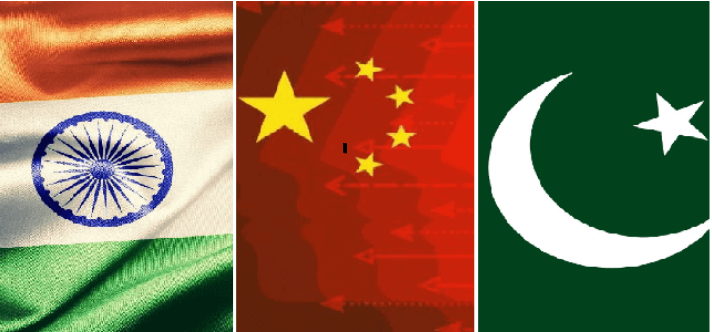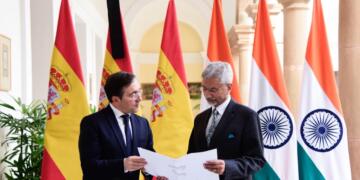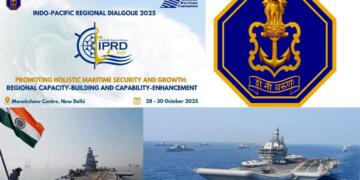Coronavirus has undoubtedly brought some tectonic changes in the world order, and countries around the world are now apprehensive about aligning themselves with the sole culprit of the pandemic – China. China’s heightened belligerence both in the South and the East China Sea, as well as in the Himalayas against India has exposed the country as an expansionist and territory-hungry entity, whose appetite to open new conflict fronts is never really satiated. Further, with the ongoing Sino-India tensions in Eastern Ladakh, the geopolitical equations have changed perhaps like never before in South Asia, and the effects of the same are being felt across the world. A major change which is being seen when it comes to the world community is their increasing side-lining of Pakistan.
There is almost a psychological change which countries across the world, particularly India’s friends are effectuating. Ever since the June 15 Galwan valley clash between Indian soldiers and the PLA, the world has begun seeing India with far greater respect. Such respect, for not flinching when the paper dragon stared us in the eye got further cemented as the Modi government took to banning 59 Chinese apps from the Indian cyberspace.
India’s offensive against China for its misadventures in Eastern Ladakh is far from over. Whether it be increasing scrutiny over Chinese visa applications, the imminent ban of Confucius institutes in the country or even the barring of Chinese companies from indulging in road and highway construction in India, the Modi-led government is relentlessly beating China where it hurts them the most. Reportedly, India is also on the cusp of announcing an unprecedented ban on Huawei and ZTE, both of which are Chinese telecommunication majors facing a global backlash.
The US, which undoubtedly leads the free world order, has repeatedly cited India’s offensive against China as an example for other countries to learn from, with Secretary of State Mike Pompeo citing India on more occasions than one can recall validating his country’s upcoming onslaught against the paper dragon. The QUAD is now increasingly being talked about, which would be responsible for the freedom of not just the Indian Ocean Region, but also the Indo-Pacific. As India joins the club of US, Japan and Australia to form an unprecedented naval alliance, Pakistan is being treated as a non-entity. President Trump and the UK are also working to set up D-10, an alliance which would be including India, South Korea and Australia to the existing G-7. Pakistan, again, has not been remembered by the superpowers of the world.
For taking on China perhaps like no other country in the world, India’s stature globally has tremendously risen. As such, India is no longer being clubbed with the rogue nation and an unfortunate neighbour – Pakistan. Earlier, there was an inevitable clubbing of the two nuclear powers of South Asia and the international community looked at both India and Pakistan with the same eyes. For so long, India has had to tolerate being hyphenated along with a terror state like Pakistan, primarily due to the two countries sharing a violent history of wars, all of which Pakistan lost. Nonetheless, a multitude of factors contributed to India being mentioned in the same breadth along with Pakistan, and a major one of them being India’s inability thus far to stand up to other bullies in the region and India’s extended neighbourhood.
By aggressively taking on China, and also inflicting heavy causalities on the PLA to the extent that the CCP has till date not released their fatality count of the June 15 clash, India has managed to signal to the world that a post-pandemic world order will be seeing China taking the global backseat, or being shoved no less to that position, and India overtaking it. As such, dissociation between India and Pakistan was imminent. A country which is now fighting China like no other nation of the world can dynamically think of taking on has expectedly borne positive results for India. One must be a clown to mention India and Pakistan in the same breath any longer, especially after India teaching China a lesson of a lifetime along the LAC.
The ‘Kashmir issue’, which until last year was being seen around the world as a nuclear flashpoint between India and Pakistan now seems a boring topic to discuss for the world community. Not even the Islamic nations, leave alone the West, are willing to provide Pakistan with a platform to doll out its Kashmir propaganda. Much like Palestine, the ‘Kashmir issue’ is dying a natural death, and the priorities of the world are changing. India and Pakistan have never really been comparable powers. Pakistan has not been a power at all. It has historically been nothing more than a flamboyant terror-producing industry. Militarily, diplomatically or economically, India has always had a power asymmetry which Pakistan couldn’t imagine coping with.
Until recently, US Presidents would come to South Asia only to visit both India and Pakistan. However, this too has changed in the years gone by, with Obama first, and now President Donald Trump also visiting India while giving a landing at Pakistan a miss. For not succumbing to the arm-twisting tactics of China, Australia, which is emerging as a key player willing to constructively contribute to a free Indo-Pacific, signed a military logistics sharing pact with India only recently. A similar pact exists between India and the US, and Japan too is eyeing the inking of an agreement on similar lines with India. Nowhere in the equation does the name of Pakistan even appear.
India has not only taken on China but has also taken concrete steps against Malaysia, a country which under its former Prime Minister Mahathir Mohamad was radically turning anti-India. India putting an end to palm oil imports from Malaysia and hence sending their single-sector dependent economy into a tizzy has sent a message across the world, that acting against India’s interests will have consequences. Turkey, under the wannabe Khalifa Recep Tayyip Erdogan to is being continually snubbed by a Modi-led India.
India itself has been able to move over Pakistan. Pakistan is not India’s only enemy, and by acting concretely against its other foes as well, we have gained the appreciation of the global community, who are now able to intuitively club India among the global superpowers, while Pakistan dwells in darkness and under an extravagant external debt.
Indians too, ever since the conflict with China has taken the centre stage, have finally realised that Pakistan is no match against India and that it can be tamed whenever India so desires. China, however, is the enemy which requires more of the attention of this country’s people, as its ambitions are no less vicious than those of Pakistan. Therefore, a wave of anti-China sentiment has taken over India, and relations between the countries will never be same again. The world has taken note of the same and come to terms with the new realities of South Asia. India is no longer named alongside Pakistan; rather, it is termed as an equal partner by the global powers.





























